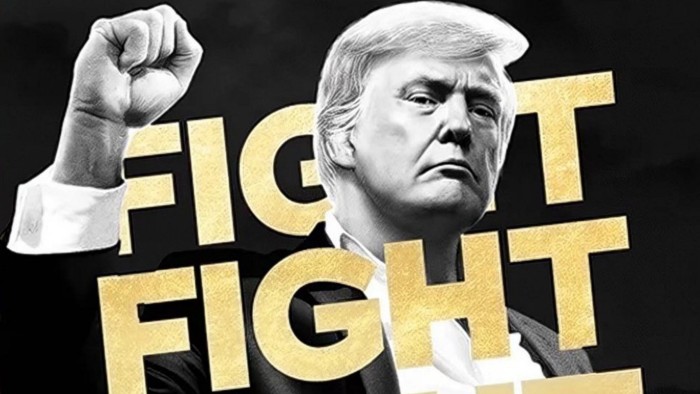Unlock the White House Watch newsletter for free
Your guide to what the 2024 US election means for Washington and the world
The writer is a professor at Cornell University, senior fellow at Brookings, and author of ‘The Future of Money’
Cryptocurrency proponents celebrated Donald Trump’s presidential victory, seeing in him a kindred spirit. The price of bitcoin, the original and most prominent cryptocurrency, has surged since his re-election in November. Under Trump, the crypto industry seems set to get what it wants — legitimacy provided by government oversight and light-touch regulation. It is a toxic mix for both the financial system and investors.
The switch in Trump’s views on cryptocurrencies — from sceptic to vocal advocate — does not mask the reality that nothing has changed in the fundamentals of this asset class, including its lack of intrinsic value. But the ethos of his administration lines up well with bitcoin’s libertarian aspects.
Shortly before this week’s inauguration, both Trump and his wife Melania launched meme coins. It is remarkable for a government official, let alone the leader of the free world, to create and promote a purely speculative financial product from which they can profit. The financial grab left some crypto investors worrying that Trump might even undercut the mainstream acceptability of cryptocurrencies by reinforcing perceptions that they are all essentially scams.
Trump has since righted the ship somewhat. He issued an executive order supportive of the crypto industry and directed the government apparatus to set up a regulatory framework to promote its activities.
The new president wants America to become the crypto capital of the planet, floating a proposal to create an official US bitcoin reserve. Establishment of such a reserve would give bitcoin an official imprimatur. But it makes little sense. Instead it would result in the government taking on the risks associated with bitcoin’s price volatility. Even if it generated paper profits, selling a significant share would cause bitcoin’s price to plunge, lowering the value of the rest of the government’s holdings.
Still, it is clear which way the winds are blowing. See the nominations of crypto enthusiasts Scott Bessent as Treasury secretary and Paul Atkins as head of the Securities and Exchange Commission. David Sacks, now the White House crypto tsar, will also be a forceful advocate for the industry.
True believers in decentralised finance built on bitcoin’s blockchain technology must be distraught. The notion that a government should be involved in the creation, dissemination, and usage of bitcoin contravenes the very principles under which it was created.
At least their digital wallets are getting fatter, which may soften the blow.
Financial regulators will now undoubtedly ease restrictions on the issuance, use and trading of cryptocurrencies and crypto-related financial products. Crypto creators, promoters and exchanges will be able to operate more freely, while banks and investment managers will face fewer constraints in dealing with the assets. These changes will boost the broad adoption of crypto by both retail and institutional investors.
The mainstreaming of crypto and the benign attitude of regulators will also spur closer connections between the industry and traditional financial institutions such as commercial banks and investment management firms. These connections will expose the conventional financial system to risk spillovers.
Meanwhile regulatory agencies and top administration officials are legitimising crypto assets, despite their highly speculative nature and the perils of exposing unsophisticated retail investors to their volatility.
Investors should be free to invest as they please, no matter how risky the asset class. But when a US president and his top officials speak favourably about an industry, investors could well let down their guard. History shows that such government boosterism often ends badly, with retail investors and taxpayers bearing the financial burden.
China’s housing market bubble, which is deflating with painful consequences, provides an interesting parallel.
For many years the Chinese government relied on the property sector to drive its economy while touting it as a way for households to build their own wealth. State-owned banks provided loans to property developers and mortgages to households. Local governments, which rely on land sales as a key source of revenue, further stoked the property boom. Now that the property bubble is bursting, the burden is falling heavily on the lower-income households who locked up a large share of their savings in property or scraped together down payments that are now stuck with failed developers.
The Chinese housing boom was at least related to real, physical assets. Bitcoin, by contrast, has no intrinsic value. Price volatility renders it an unviable medium of exchange and its value is based purely on scarcity, a characteristic that is arguably shared by gold.
There is nothing wrong with digital gold or with investors willing to roll the dice, unless the president and government officials are the ones who are hawking it.
Trump and his government’s implicit endorsement of bitcoin and other cryptocurrencies means that the ultimate losers — if and when the bubble pops — will be the US taxpayers.



